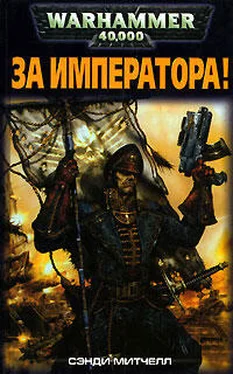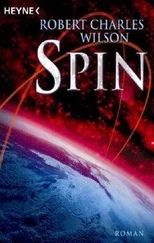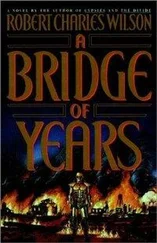I stood with Jala and we braced ourselves against the rails, watching a rust-spackled coastal freighter veer out of a bank of oil-fire smoke alarmingly close to the Capetown's stern. Both ships sounded alarms and the Capetown's, deck crew looked aft apprehensively. But the coastal freighter sheered off before it made contact.
Then we were out of the protection of the harbor into high seas and rolling swells, and I went below to join Ina and Diane and the other emigres in the crew lounge. En sat at a trestle table with Ibu Ina and his parents, all four of them looking unwell. In deference to her injury Diane had been given the only padded chair in the room, but the wound had stopped bleeding and she had managed to change into dry clothes.
Jala entered the lounge an hour later. He shouted for attention and delivered a speech, which Ina translated for me: "Setting aside his pompous self-congratulation, Jala says he went to the bridge and spoke to the captain. All deck fires are out and we're safely underway, he says. The captain apologizes for the rough seas. According to forecasts we ought to be out of this weather by late tonight or early tomorrow. For the next few hours, however—"
At which point En, who was sitting next to Ina, turned and vomited into her lap, effectively finishing her sentence for her.
* * * * *
Two nights later I went up on deck with Diane to look at the stars.
The main deck was quieter at night than at any time during the day. We found a safe space between the exposed forty-foot containers and the aft superstructure, where we could talk without being overheard. The sea was calm, the air was pleasantly warm, and stars swarmed over the Capetown's stacks and radars as if they had tangled in the rigging.
"Are you still writing your memoir?" Diane had seen the assortment of memory cards I was carrying in my luggage, alongside the digital and pharmaceutical contraband we had brought from Montreal. Also various paper notebooks, loose pages, scribbled notes.
"Not as often," I said. "It doesn't seem as urgent. The need to write it all down—"
"Or the fear of forgetting."
"Or that."
"And do you feel different?" she asked, smiling.
I was a new Fourth. Diane was not. By now her wound had closed, leaving nothing but a strip of puckered flesh that followed the curvature of her hip. Her body's capacity for self-repair still struck me as uncanny. Even though, presumably, I shared it.
Her question was a little mischievous. Many times I had asked Diane whether she felt different as a Fourth. The real question, of course, was: did she seem different to me?
There had never been a good answer. Obviously she was a different person after her near-death and resurrection at the Big House—who wouldn't be? She had lost a husband and a faith and had awakened to a world that would make even the Buddha scratch his head in perplexity.
"The transition is only a door," she said. "A door into a room. A room you've never been in, though you might have caught a glimpse of it from time to time. Now it's the room where you live; it's yours, it belongs to you. It has certain qualities you can't change—you can't make it bigger or smaller. But how you furnish it is up to you."
"More a proverb than an answer," I said.
"Sorry. Best I can do." She turned her head up toward the stars. "Look, Tyler, you can see the Arch."
We call it an "arch" because we're a myopic species. The Archway is really a ring, a circle a thousand miles in diameter, but only half of it rises above sea level. The rest of it is underwater or buried in the crust of the Earth, perhaps (some have speculated) exploiting the suboceanic magma as a source of energy. But from our ant's-eye point of view it was indeed an arch, the peak of which extended well above the atmosphere.
Even the exposed half of it was completely visible only in photographs taken from space, and even those photographs were usually doctored to emphasize detail. If you could take a cross-section of the ring material itself—in effect, the wire that bends into a hoop—it would be a rectangle a quarter mile on its short side and a mile on the long. Immense, but a tiny fraction of the space it enclosed and not always easy to see at a distance.
Capetown Mam's route had taken us south of the ring, parallel to its radius and almost directly beneath its apex. The sun was still shining on that peak, no longer a bent letter U or J but a gentle frown (a Cheshire frown, Diane called it) high in the northern sky. Stars rotated past it like phosphorescent plankton parted by the prow of a ship.
Diane put her head against my shoulder. "I wish Jason could have seen this."
"I believe he did see it. Just not from this angle."
* * * * *
There were three immediate problems at the Big House following Jason's death.
The most pressing was Diane, whose physical condition remained unchanged for days following the injection of the Martian drug. She was nearly comatose and intermittently feverish, her pulse beating in her throat like the flutter of an insect wing. We were low on medical supplies and I had to coax her to take an occasional sip of water. The only real improvement was in the sound of her breathing, which was incrementally more relaxed and less phlegmatic—her lungs, at least, were mending.
The second problem was distasteful, but it was one we shared with too many other households across the country: a family member had died and needed burying.
A great wave of death (accidental, suicidal, homicidal) had swept over the world in the last few days. No nation on Earth was equipped to deal with it, except in the crudest possible fashion, and the United States was no exception. Local radio had begun to announce collection sites for mass burials; refrigerated trucks had been commandeered from meat packing plants; there was a number to call now that phone service had been restored—but Carol wouldn't hear of it. When I broached the subject she drew herself into a posture of fierce dignity and said, "I won't do that, Tyler. I will not have Jason dumped into a hole like a medieval pauper."
"Carol, we can't—"
"Hush," she said. "I still have a few contacts left from the old days. Let me make some calls."
She had once been a respected specialist and must have had an extensive network of contacts before the Spin; but after thirty years of alcoholic seclusion, whom could she possibly know? Nevertheless she spent a morning on the phone, tracking down changed numbers, reintroducing herself, explaining, coaxing, begging. It all sounded hopeless to me. But not more than six hours later a hearse pulled into the driveway and two obviously exhausted but relentlessly kind and professional men came inside and put Jason's body on a wheeled stretcher and carried him out of the Big House for the last time.
Carol spent the rest of the day upstairs, holding Diane's hand and singing songs she probably couldn't hear. That night she took her first drink since the morning the red sun rose—a "maintenance dose," she called it.
Our third big problem was E. D. Lawton.
* * * * *
E.D. had to be told that his son had died, and Carol steeled herself to perform that duty, too. She confessed she hadn't talked to E.D. except through lawyers for a couple of years now and that he had always frightened her, at least when she was sober—-he was big, confrontational, intimidating; Carol was fragile, elusive, sly. But her grief had subtly altered the equation.
It took hours, but she was finally able to reach him—he was in Washington, within commuting distance—and tell him about Jason. She was carefully vague about the cause of his death. She told him Jason had come home with what looked like pneumonia and that it had turned critical shortly after the power died and the world went berserk—no phone, no ambulance service, ultimately no hope.
Читать дальше












